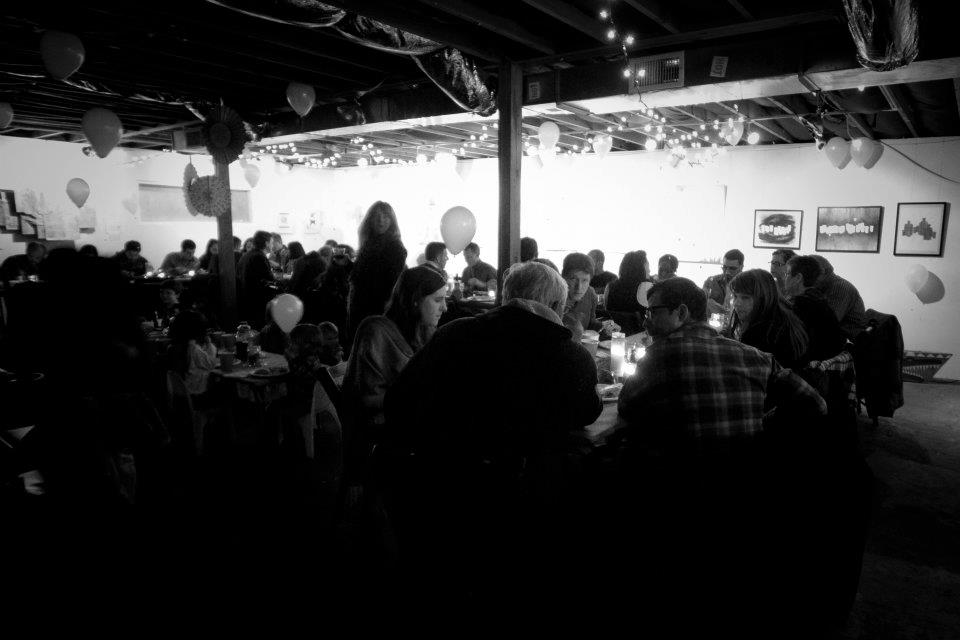Rachel Held Evans recently pointed out on CNN that Millenials are leaving the church like crazy.
I point to research that shows young evangelicals often feel they have to choose between their intellectual integrity and their faith, between science and Christianity, between compassion and holiness.
It doesn’t have to be this way! How do I know? For the past four years, I’ve been involved in a mostly-millennial church. While we have our share of short comings, I’ve learned at least seven lessons about how to be the church in the millennial generation.
1. Look (and sound) like your city
When people ask me what kind of church we are, I say that it is “an Austin kind of church.” Austin is known for being the live music capital of the world, a start-up hot bed, the state capital, a world-class university system, a renown restaurant scene with more craft beer than you can drink.
So, when we try to live the church together in Austin, we do Austin things. We go on bike rides and participate in local festivals. We share space with neighborhood non-profits. On Sundays, you’ll hear references to the Longhorns, clips from This American Life, and Sufjan Stevens songs.
When a millennial joins a back yard party or Sunday liturgy they see people and hear sounds that are familiar. They need to know that they can come and learn about Jesus and still be themselves.

2. Be a safe place to come back to Church
When a Jewish friend started giving me a hard time about Michael W. Smith, I learned something about America: in many places, we aren’t un-churched yet, we’re more de-churched. Welcoming Millenials means being a safe place to come back to church. You need an environment that harkens back to good memories.
We have a Sunday morning gathering, practice weekly communion and sing a lot of old hymns. Doing something “outside the box”, like being a house church or meeting in a bar could be seen a stretch. Our gathering isn’t meant to be “attractional,” just familiar enough to be safe.
3. Wear your brokenness
The emotional highpoint of our liturgy is our practice of Prayers of the People. For a few minutes, the mics are open for people to share praises or petitions. The congregation responds with “Thanks be to God!” and “Lord, have mercy.” During these times, people have admitted huge sins, cried for hurting friends and shared a good laugh.
Millenials are thirsty to see authenticity in others. They have experienced judgmental religiosity and want nothing to do with it. When we lead with our own brokenness, others know they know they can be themselves.

4. Structure is your friend
One new visitor described our Sunday Liturgy’s as being “so structured that creative things happen.” We do the same things in the same order every week. This includes prayers of confession, call and response and the Eucharist. This gives us the opportunity to be both sacramental and creative.
5. Everyone has a role
Every Sunday, we begin by explaining that the word Liturgy means “work of the people,” and that means “it is everyone’s job to be a good host.” This is reinforced by constantly shifting who is up front. Different people read prayers or serve the Eucharist. The staff only preaches about 60% of the time. (They even let me speak on occasion!) Small groups are very small, and everyone has the opportunity to speak. If Millenials want entertainment, they have better options than your church. So give them a role.
6. Ask lots of questions
Since the word of God is alive and active, we don’t need to tell people what to do or think. Unpack scripture, and then ask the question: what would it look like for us to live this in our neighborhood? Millenials don’t need to be told what to think. Make space for the word to do its job.
7. Live in proximity
Millenials are thirsty for community. Community requires seeing people throughout the week. That doesn’t happen naturally in our culture. Our church began when 15 families moved together to a neighborhood. We ride our bikes to eachother’s houses. We grab dinner at neighborhood restaurants. We swim in the neighborhood pool. People are welcome no matter where they live. (We have a few who even drive in from Houston!) Reality is that it is easier to be in each other’s lives when you see each other every day.
We don’t have to worry about the “Millenial Exodus” because God has promised that the Gates of Hades will not overcome his church. We just have to decide if we are willing to get on board and be the church for the next generation.
How have you seen churches engage Millenials?










 Tweets
Tweets